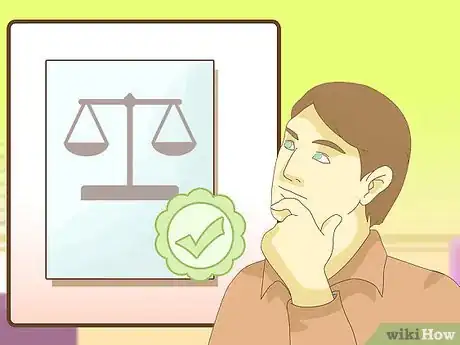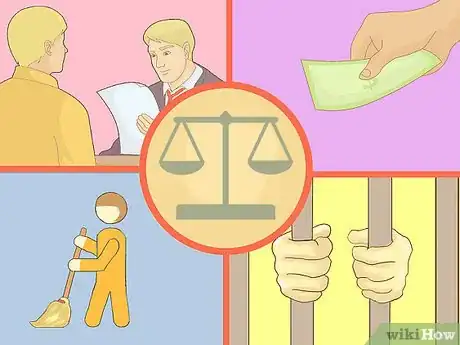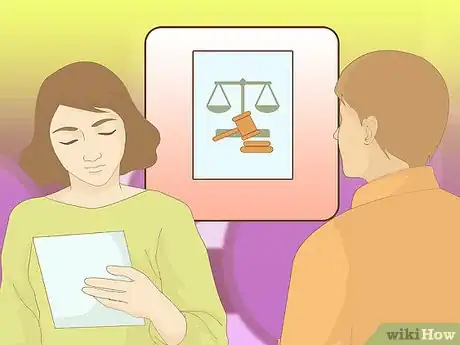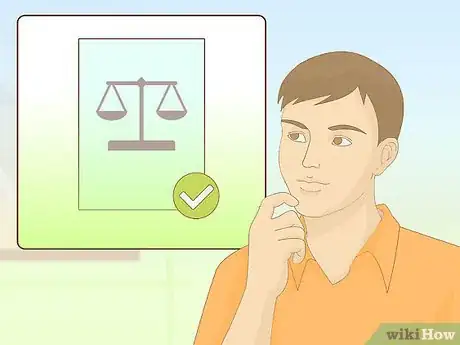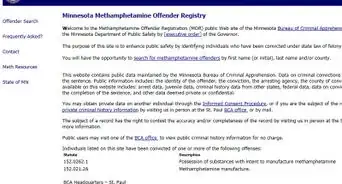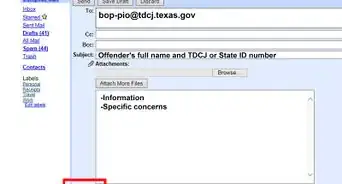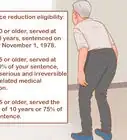This article was co-authored by Clinton M. Sandvick, JD, PhD. Clinton M. Sandvick worked as a civil litigator in California for over 7 years. He received his JD from the University of Wisconsin-Madison in 1998 and his PhD in American History from the University of Oregon in 2013.
There are 7 references cited in this article, which can be found at the bottom of the page.
This article has been viewed 49,639 times.
After you are convicted of a crime, a judge could sentence you to prison or put you on probation. With probation, you are allowed to stay out of prison although you will have to satisfy certain conditions, such as community service. You may also plead guilty and get probation in exchange for the plea. To make the best case possible for probation, you should talk to your lawyer.
Steps
Preparing to Ask for Probation
-
1Hire a lawyer. Probation is a criminal punishment, not a civil one. That means that you will be eligible for probation only if charged with a crime. After you are charged, you should get a lawyer. A lawyer will help you determine whether probation (instead of prison) is a realistic option for you.
- If you can’t afford a lawyer, then you should request a public defender. You will need to complete an application and submit it to the court. The application will ask for various financial information such as how much you and your spouse make, your monthly expenses, and the value of savings accounts and property.[1] After reviewing the information, the judge will decide whether or not you qualify for a public defender.
- You may need to plead guilty in order to get probation. A prosecutor can recommend probation instead of jail; however, the prosecutor will probably want something in return—a guilty plea. You should discuss whether or not to plead guilty with your lawyer.
-
2Check if you qualify. Probation is not offered to every offender. For some offenses, jail is the only punishment available.[2] Your lawyer will have a better idea whether or not you can get probation based on your criminal history.
- Some states actually prohibit criminal defendants from getting probation if they were ever convicted of the sale of cocaine.[3]
- In Texas, for example, you are eligible for probation if your sentence is for 10 years or less and you were not convicted of the following:
- murder or capital murder
- aggravated kidnapping, aggravated sexual assault, or aggravated robbery
- indecency with a child or sexual assault of a child
- a second drug offense in a drug-free zone
- any felony where a deadly weapon was exhibited or used
Advertisement -
3Understand the typical terms of probation. If you are ordered to serve probation, then you will probably have to complete other conditions. Typically, people on probation are required to do some of the following:[4]
- Perform a certain number of hours of community service
- Receive counseling
- Pay fines
- Serve some time in jail before going on probation
- Regularly report to your probation officer
- Pay restitution to the victim
- Not possess a firearm or drugs/alcohol
-
4Develop your argument. At your sentencing hearing, you will need to give a judge reasons why you deserve probation instead of a jail sentence. In short, you must convince the judge that you are worth the risk of not locking up. To this end, you should help your lawyer identify those characteristics that make you a good candidate for probation:
- You have a job. Regular employment or a stable job helps show that you are a good risk.
- You have a family to support. Evidence that people are depending on you for financial support will also help convince the judge to let you stay out of prison.
- Your criminal history is sparse. If you have a long list of arrests or convictions, then you are less likely to get probation.
-
5Ask witnesses to testify on your behalf. After your trial, you will be sentenced if you are convicted. The judge will hold what is called a “sentencing hearing” several weeks after the jury delivers its verdict.[5] If possible, you can have an employer, faith leader, or other member of the community come to court and testify as to your good character. Try to make sure that the person isn’t simply a family member.
- If the person can’t come into court on the appropriate day, then they could write a letter. For information on how to write a character reference letter, see Write a Character Letter to a Judge.
- If someone agrees to make a statement, then let that person know when the sentencing hearing is scheduled so that they can attend.
Asking for Probation
-
1Ask for probation before going to trial. As part of a plea deal, your lawyer can approach the prosecutor and ask for “deferred probation.” This type of probation is only available before you go to trial.
- Your attorney should be experienced in asking for probation. Remember, the prosecutor would probably like to avoid going to trial, which can be time consuming and unpredictable.
-
2Request probation as your sentence. You might decline a plea deal and go to trial. If you are convicted at trial, then you can try to get “regular probation” at the sentencing hearing. Regular probation is imposed instead of a prison sentence. With regular probation, you should expect the prosecutor to be opposed to probation.
- At the sentencing hearing, the prosecutor will probably argue for a stiff sentence. Your lawyer will also have a turn to argue.[6] He or she will need to convince the judge that probation is an appropriate sentence. You should have provided your lawyer with all relevant information that will show the judge that you are not at risk of committing more crimes.
- Your lawyer will make this argument, not you. You need to let your lawyer, who is experienced in these things, argue at the sentencing hearing that you deserve probation.
-
3Appear before the judge. Your sentence will not be imposed without your presence in court, so you can anticipate being at the sentencing hearing. Furthermore, you might have the opportunity to address the judge.[7] You have a chance to talk to the judge after the prosecutor and your lawyer speaks.
- You should talk over with your attorney whether or not you want to make a statement.[8] Your attorney will want to help you plan your statement.
- If you decide to address the judge personally, then it should be only to express remorse and to take responsibility for your actions. You should in no way claim innocence or argue that you deserve probation because you know someone who received probation for committing the same crime.
- When referring to the judge, say “Your Honor.”[9] Be extremely polite—the judge holds your fate in his or her hands.
- For additional tips, see Address a Judge in Court.
-
4Satisfy the conditions of your probation. If you are granted probation at the sentencing hearing, you absolutely must follow all conditions. You should receive a written listing of everything you must do. If you did not receive it from the court, then ask your attorney for it. Any slip-up could result in losing your probation.
- Reach out to your probation officer. You should be proactive and commit to satisfying all of your conditions without having your probation officer have to nag you. Establish a good working relationship with your probation officer early. For tips on how to communicate, see Talk to a Probation Officer.
- Probation is essentially a “suspended sentence.” In other words, you are sentenced to prison but the sentence is “suspended” so long as you satisfy the conditions of your probation. Should you violate them, then a judge has the power to revoke probation and put you in jail.[10]
References
- ↑ http://oklaw.org/files/CB59BD67-E9D4-A408-BB53-C676C85FEED2/attachments/2B83E353-442A-4A75-B4A0-075838BB2E23/application-for-public-defender.pdf
- ↑ http://www.criminaljusticedegreehub.com/what-is-probation/
- ↑ http://www.nolo.com/legal-encyclopedia/sentencing-alternatives-prison-probation-fines-30294.html
- ↑ http://www.criminaljusticedegreehub.com/what-is-probation/
- ↑ http://www.nolo.com/legal-encyclopedia/what-happens-sentencing.html
- ↑ http://www.nolo.com/legal-encyclopedia/what-happens-sentencing.html
- ↑ http://www.nolo.com/legal-encyclopedia/what-happens-sentencing.html
- ↑ http://www.18thjudicialcircuitpublicdefender.com/client-information/#sentencing
- ↑ http://www.dvguide.com/judge.html

